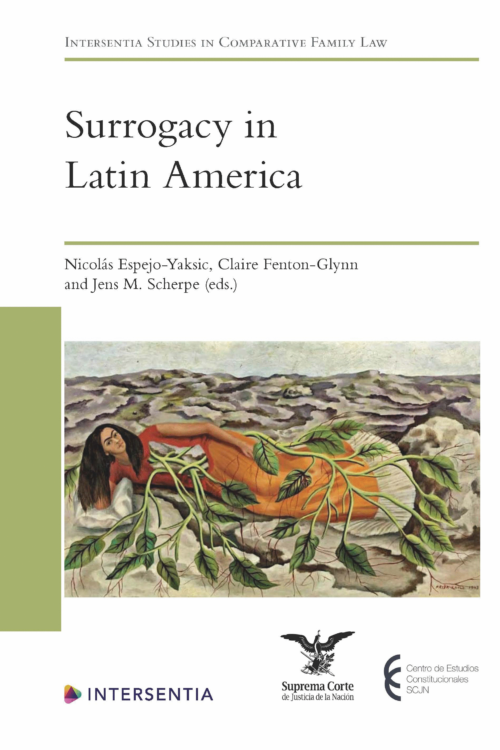Dr Nicolás Espejo-Yaksic publishes pioneering work on surrogacy in Latin America
Visiting Fellow Dr Nicolás Espejo-Yaksic has recently published the collective work Surrogacy in Latin America alongside Claire Fenton-Glynn and Jens M Scherpe.
Dr Espejo-Yaksic joined Exeter College as a Visiting Fellow in 2021. He is a Researcher at the Centre for Constitutional Studies of the Supreme Court of Mexico and a Member of the Leiden Children’s Rights Observatory. He has worked for over 25 years in the field of human rights.
Surrogacy in Latin America is the first comprehensive engagement with surrogacy and surrounding issues in Latin America in the English language. It examines the approaches taken in Latin American jurisdictions, bringing together experts from Argentina, Brazil, Chile, Colombia, Costa Rica, Dominican Republic, Ecuador, Guatemala, Mexico, Peru, Puerto Rico and Uruguay. It provides an overview of the national developments and current legal reform processes in their historical and societal contexts and puts these developments into a global perspective.
The aim of the book is to shed light on the difficult ethical dilemmas arising from the practice of surrogacy by mapping the different ways in which states in Latin America have responded to surrogacy. Each chapter includes a discussion of the laws concerning the establishment and contestation of legal parentage through surrogacy under domestic law; the rules and laws concerning surrogacy arrangements on a domestic level; and approaches to recognition of legal parenthood acquired through surrogacy in other jurisdictions. In addition, the chapters consider the socio-economic context of surrogacy in the chosen jurisdictions, through questions concerning the profile of surrogate mothers and commissioning parents, the involvement of intermediaries, and the nature of the interactions between these parties.
Surrogacy in Latin America seeks to contribute to the greater understanding of the regulation of surrogacy throughout the world, and will serve as a reference work for anyone involved in practice, academia or law reform in this subject area.
Learn more about the book here.

